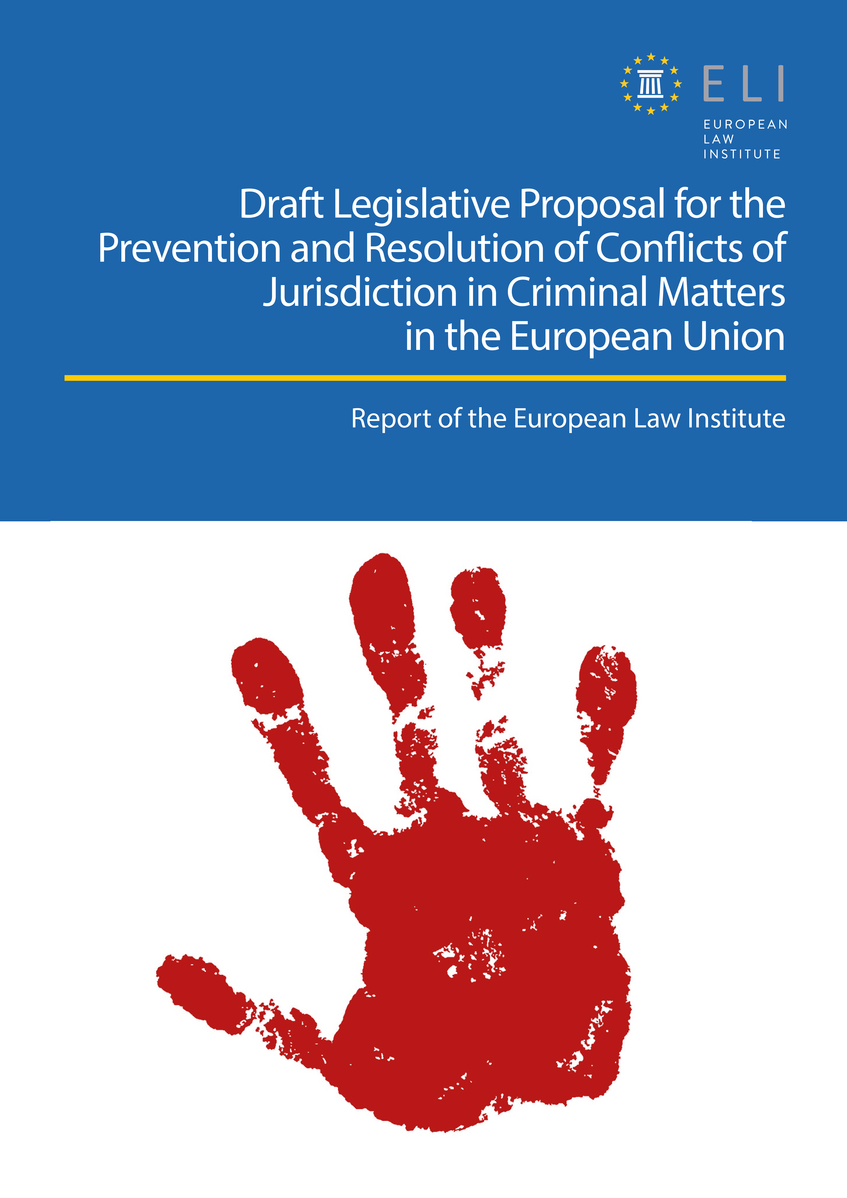ELI Report Prevention and Resolution of Conflicts of Jurisdiction in Criminal Matters in the European Union
Quick Facts and Output
Project Type and Output: Report
Procedure: Normal
Adopted: CD 2013/1
Project Period: January 2013–March 2017
Summary
The ELI Statement on the European Commission's Proposed Directive on the Supply of Digital Content to Consumers [COM (2015) 634 final] focused on the proposal of the so-called ‘Digital Content Directive’ (DCD). The Project Team considered that despite the Directive offering important clarity and protection to consumers, room for improvement still existed, therefore it proposed a number of changes to the Directive.
Background
As cross-border crime grows, international and transnational criminal justice is often confronted with situations where various States have legitimate jurisdiction over the same case. This can result in both positive and negative conflicts of jurisdiction. Traditionally the exercise of jurisdiction was usually limited by a State’s territory. Today, however, it extends beyond the principle of territoriality. There is, therefore, a significant need in both international and European criminal law to identify the most appropriate jurisdiction in which criminal cases should be tried. This is necessary in order to avoid, on the one hand, multiple prosecutions of the same crime and, on the other hand, a failure to prosecute in any jurisdiction.
Outline
The project tackles one of the most important legal problems within transnational criminal law. It aims at developing a new legal framework for the prevention and resolution of conflicts of exercise of jurisdiction. The Working Group – which is composed of practitioners and academics in the private and criminal law domain from different EU countries – begun by carrying out a comparative study of different national provisions concerning conflicts of law in EU Member States. Based on the results of this work and also taking existing research into account, the Group conducted an analysis of the existing means by which conflicts of jurisdiction are prevented and resolved. Following that, the project moved onto the second, developmental stage in which a new legal framework was elaborated. While exploring the solutions to the problem of conflicts of jurisdictions in criminal law, the Group gave due consideration to the principles already used in that regard in the field of private international law.
In October 2013, the Fonds National de la Recherche Luxembourg (FNR) confirmed that it would finance the project leading the way for work to commence in November 2014. In addition to scientific research done by members of the Project Team and other members of the Working Group, four meetings were held to discuss the results of the scientific research and related practice and to elaborate upon the legal framework.
Objectives
This project aimed at elaborating a new legal framework for the prevention and resolution of conflicts of jurisdiction in criminal matters in the Area of Freedom, Security and Justice (AFSJ). To arrive at the proposed new legal framework, the project examined the following issues:
- What should the objective of a statutory horizontal framework at European level be?
- What type or types of measures are needed to prevent and settle conflicts of jurisdiction in criminal matters in the AFSJ?
- Can useful parallels be drawn with the Brussels Regulation (in the area of private law) given the need to facilitate the mutual recognition of judgments and judicial decisions in criminal matters?
- Should the transfer of proceedings and ne bis in idem be taken into account?
- Does an integrated (EU) legal order with citizens’ rights make a difference (‘from conflicts of jurisdiction to choice of forum’)?
- Is there, and if so, to which extent, a role for European institutions, bodies and agencies?
- What roles, and rights, of the defendant and victims, are taking into account the European Convention on Human Rights (ECHR) and the EU Charter of Fundamental Rights (EUCFR). Does the concept of EU citizenship have added value in this respect?
- Is there a need for judicial review or ‘justiciability’?
Project Reporters
- André Klip
- Katalin Ligeti
- John Vervaele
Working Group
- Miguel Carmona Ruano
- Gilles Cuniberti
- Hans-Holger Herrnfeld
- Burkhard Hess
- Andrea Kenez
- Michiel Luchtman
- Angelo Marletta
- Holger Matt
- Jeannot Nies
- Pietro Ortolani
- Gavin Robinson
- Michele Simonato
- Martin Wasmeier
Advisory Committee
- Petter Asp
- Martin Böse
- Margherita Cassano
- AAH van Hoek
- Maria Kaiafa-Gbandi
- Gabor Molnar
- Tim O’Sullivan
- Jean-Philippe Rivaud
- Helmut Satzger
- Anne Weyembergh
Representatives of Eurojust
- Maria Poza Cisneros
- Catherine Deboyser
- José Guerra
- Pietro Suchan
Representatives of European Commission
- Anna Hodgson
- Tania Schröter
Representative of European Parliament
- Massimiliano Mini

